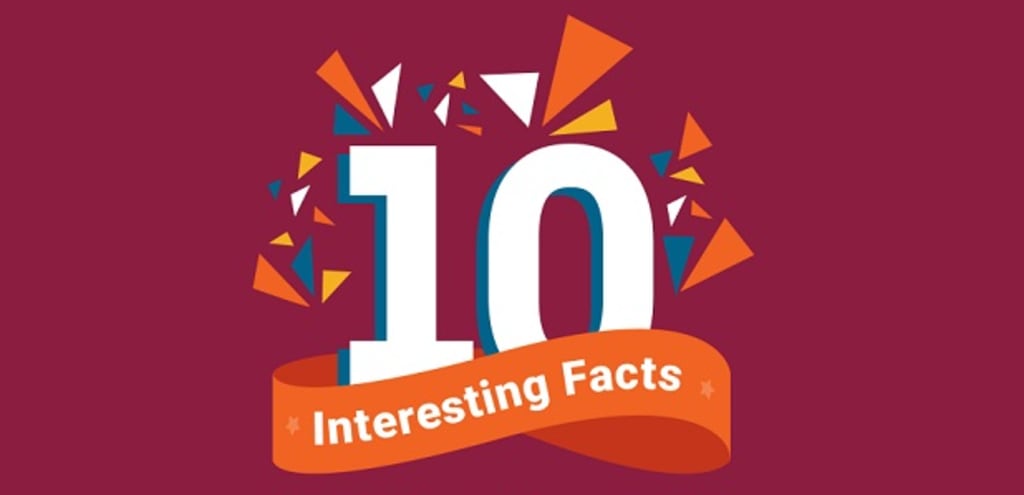10 interesting things in history that few people know
History always brings interesting mysteries

We humans are living in the era of digital technology, society develops every day, but we cannot ignore history because there are countless interesting things that have happened in human history that people still cannot explain today
The Construction of the Great Wall of China: The Great Wall of China is a well-known symbol of ancient engineering and defensive architecture. Initially constructed during the Qin Dynasty (around 220–206 BCE) and later expanded by successive dynasties, it extends over 13,000 miles across northern China. The wall was built to safeguard China from nomadic invasions and functioned as a boundary marker, trade route, and communication link. The Rise and Fall of the Roman Empire: The Roman Empire, which emerged in the 1st century BCE and endured for over 500 years, had a significant impact on Western civilization. At its peak, it covered vast territories across Europe, Africa, and Asia, fostering cultural exchange, technological innovation, and legal systems. However, internal conflicts, economic decline, and external invasions led to its eventual collapse in the 5th century CE, marking the end of classical antiquity. The Age of Exploration: The Age of Exploration, spanning the 15th to 17th centuries, witnessed European voyages of discovery and maritime expansion. Explorers like Christopher Columbus, Vasco da Gama, and Ferdinand Magellan mapped new sea routes, established global trade networks, and encountered diverse cultures. These expeditions altered the world's geography, economy, and cultural exchange. The Enlightenment: The Enlightenment, an intellectual and philosophical movement of the 17th and 18th centuries, emphasized reason, science, and individual rights. Enlightenment thinkers such as John Locke, Voltaire, and Jean-Jacques Rousseau advocated for liberty, democracy, and the separation of church and state. Their ideas laid the groundwork for modern democracy, human rights, and secularism. The Industrial Revolution: The Industrial Revolution, which began in Britain in the late 18th century, signified a shift from agrarian societies to industrialized economies. Advancements in machinery, transportation, and manufacturing revolutionized production processes and fueled urbanization. The revolution had widespread social, economic, and environmental consequences, including mass urban migration, labor exploitation, and environmental degradation. World War I: World War I, also known as the Great War, was a global conflict that erupted in 1914 and endured until 1918. Fueled by political tensions, imperial rivalries, and militarism, the war pitted the Allied Powers against the Central Powers. It resulted in unparalleled destruction, loss of life, and political upheaval, leading to the collapse of empires and the redrawing of national boundaries. The Russian Revolution: The Russian Revolution of 1917 was a series of revolutions that culminated in the overthrow of the Russian monarchy and the establishment of the Soviet Union. Led by the Bolsheviks under Vladimir Lenin, the revolutionaries seized power, abolished the monarchy, and implemented socialist reforms. The revolution sparked civil war, economic upheaval, and political repression, shaping the course of the 20th century. The Holocaust: The Holocaust was the systematic genocide of six million Jews by Nazi Germany and its collaborators during World War II. Driven by anti-Semitic ideology, the Nazis implemented policies of persecution, segregation, and extermination. The Holocaust remains one of the darkest chapters in human history, underscoring the dangers of bigotry, hatred, and totalitarianism. The Cold War: The Cold War was a geopolitical and ideological rivalry between the United States and the Soviet Union, lasting from the end of World War II to the early 1990s. Characterized by proxy conflicts, nuclear brinkmanship, and ideological competition, the Cold War divided the world into competing blocs and shaped global politics, economics, and culture. The Digital Revolution: The Digital Revolution, which began in the late 20th century, transformed society through the widespread adoption of digital technologies and the internet. Innovations such as personal computers, smartphones, and the World Wide Web revolutionized communication, commerce, and entertainment. The digital revolution continues to reshape how we live, work, and interact in the 21st century.
About the Creator
Adam
Let's contemplate and enjoy life together
Enjoyed the story? Support the Creator.
Subscribe for free to receive all their stories in your feed. You could also pledge your support or give them a one-off tip, letting them know you appreciate their work.






Comments
There are no comments for this story
Be the first to respond and start the conversation.